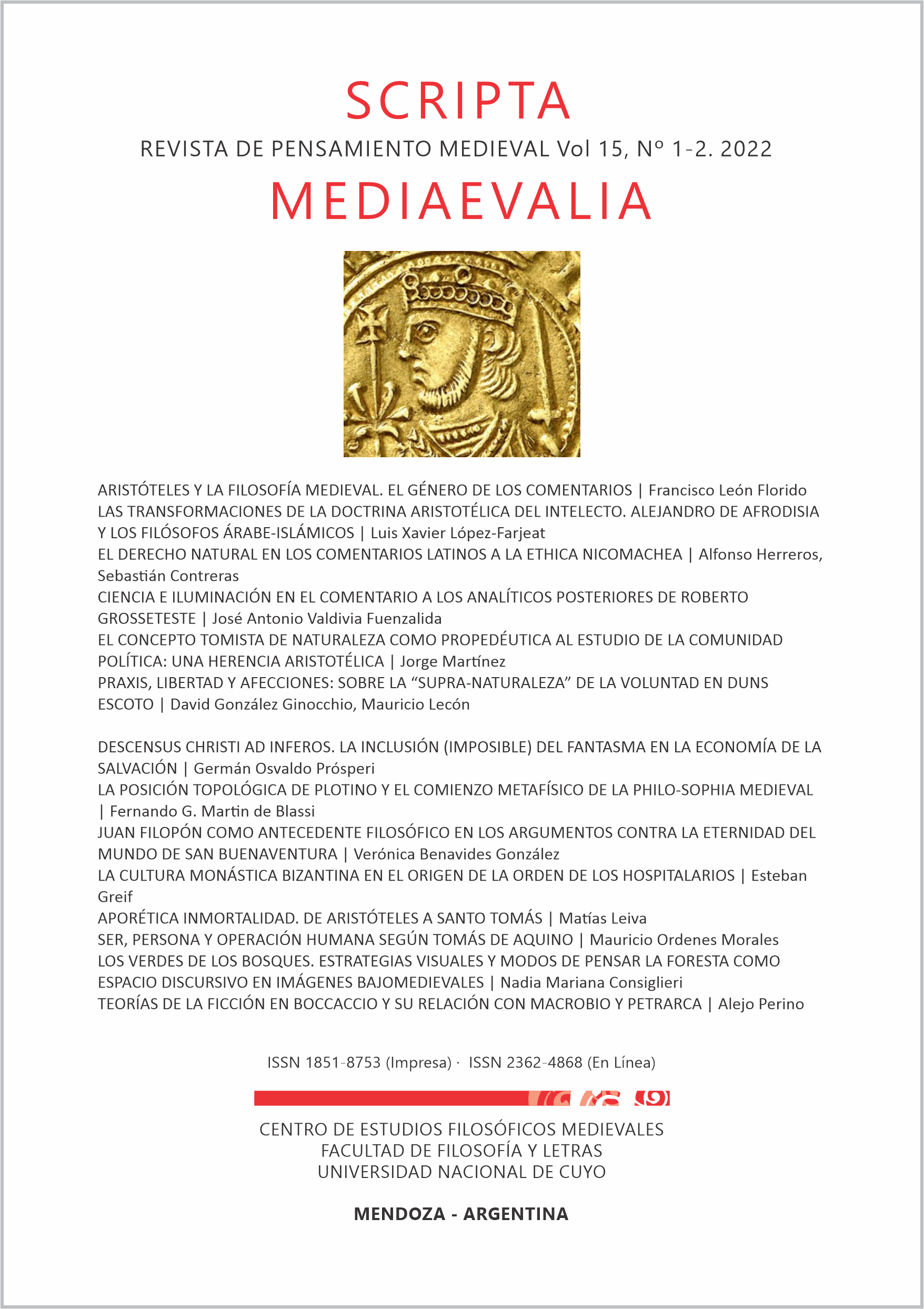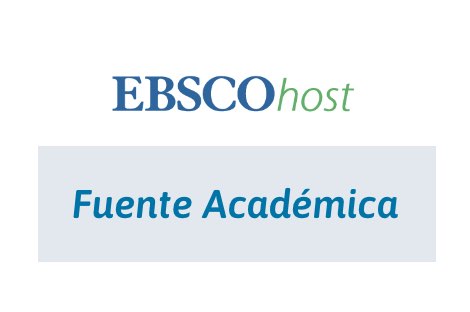Fiction theories in Boccaccio and his relation with Macrobius and Petrarch
DOI:
https://doi.org/10.48162/rev.35.022Keywords:
Boccaccio, Macrobius, Petrarch, fabula, fictionAbstract
The present work aims to analyze the Boccaccio's defense of poetry in the last two books of the Genealogie deorum gentilium in connection with its main source, the types of fabulae that Macrobius exhibits in his Commentarii in Somnium Scipionis. Throughout the analysis we will demonstrate that Boccaccio's classification looks for to incorporate into the fabula statute a type of fiction that cannot be interpreted allegorically, but instead it fulfills the function of comforting the afflicted souls. On the other hand, although Petrarch's ideas about poetry include reading modes that point to the same goal, they cannot be assimilated to Boccaccio’s, since they reproduce the difference among the high and the low which is already in Macrobius’s work. In this way, Boccaccio's theory of fiction is shown as an original rewriting in regard to the others mentioned before.
References
Bietenholz, Peter. Historia and fabula: myths and legends in historical thought from Antiquity to the Modern Age. Leiden, New York, Köln: Brill, 1994.
Billanovich, Giuseppe. Lo scrittoio del Petrarca. Roma: Ed. di Storia e Letteratura, 1995.
Blanco Jiménez, José “Giovanni Boccaccio: intermediario entre la cultura clásica y la cultura renacentista europea”, Scripta Mediaevalia, Revista de Pensamiento Medieval, 9, n° 1 (2016): 35-53, [Consulta: 28/03/2022] http://revistas.uncu.edu.ar/ojs/index.php/scripta/article/viewFile/740/454
Boccaccio, Giovanni. “Esposizioni sopra la Commedia di Dante” en I commenti danteschi dei secoli XIV, XV e XVI (Roma: Lexis Progetti Editoriali, 1999), [Consulta: 28/03/2022] www.bibliotecaitaliana.it.
Boccaccio, Giovanni. “Trattatello in laude di Dante”, en Tutte le opere di Giovanni Boccaccio, editada por Giorgio Ricci. Milán: Mondadori, 1974, [Consulta: 28/03/2022] www.bibliotecaitaliana.it
Boccaccio, Giovanni. Genealogía de los dioses paganos, editada por María Consuelo Alvarez y Rosa María Iglesias. Madrid: Editora Nacional, 1983.
Boccaccio, Giovanni. Genealogie deorum gentilium libri, editada por Vincenzo Romano. Bari: Gius. Laterza & figli, 1951, [Consulta: 28/03/2022] www.bibliotecaitaliana.it.
Bragantini, Renzo. “Petrarch, Boccaccio, and the Space of Vernacular Literature”, Petrarch and Boccaccio: The unity of knowledge in the Pre-modern World, editado por Igor Candido, 313-339. Berlín: Boston, De Gruyter Mouton, 2018, [Consulta: 28/03/2022] doi: 10.1515/9783110419306-016
Bruni, Francesco. Boccaccio. L’invenzione della letteratura mezzana. Bolonia: Il Mulino, 1990.
Candido, Igor. Boccaccio umanista. Studi su Boccaccio e Apuleio. Ravenna: Longo, 2014.
Castelain, Maurice. “Demogorgon, ou le barbarisme déifié”, Bulletin de I' Association Guillaume Budé, n° 36 (1932): 22-39.
Curtius, Ernst Robert. Literatura europea y Edad Media latina. México: Fondo de Cultura Económica, 2005.
Delcorno, Carlo. Exemplum e letteratura tra Medioevo e Rinascimento. Bologna: Mulino, 1989.
Eisner, Martin. “Boccaccio’s Renaissance”, en Boccaccio and the european literary tradition, editado por Piero Boitani y Emilia Di Rocco. Roma: Edizioni di Storia e Letteratura, 2014.
Erasmo de Rotterdam Discusión sobre el libre albedrío. Buenos Aires: El cuenco de plata, 2012.
Fiorilla,Maurizio. “La lettura apuleiana del Boccaccio e le note ai manoscritti laurenziani 29, 2 e 54, 32”, Aevum 73, 3, (1999): 635–668.
Guérin, Philippe. “Intention de l’auteur ou volonté du texte ? Pétrarque et Boccace sur la poésie: vols de mots et mots attrapés au vol”, Parole Rubate. Rivista internazionale di studii sulla citazione, n° 10 (2014): 21-51, [Consulta: 28/03/2022] http://www.parolerubate.unipr.it/indici_php/fascicolo_10.php
Hankey, Teresa. “Un nuovo codice delle Genealogie deorum di Paolo da Perugia (e tre manualetti contemporanei)”, Studi sul Boccaccio n° 18, (1989): 65-161.
Kircher, Timothy. The poet’s wisdom. The humanists, the church and the formation of philosophy in the early Renaissance. Leiden ; Boston : Brill, 2006.
Kriesel, James. “The Genealogy of Boccaccio’s theory of allegory”, Studi sul Boccaccio, 37 (2009): 197-226.
Landi, Carlo. Demogòrgone. Con saggio di nuova edizione delle "Genologie deorum gentilium" del Boccaccio e silloge dei frammenti di Teodonzio. Palermo: Casa editrice remo Sandron, 1930, [Consulta: 28/03/2022] https://archive.org/details/MN40018ucmf_0
Lummus, David. “Boccaccio’s Poetic Anthropology: Allegories of History in the Genealogie deorum gentilium libri”, Speculum n° 87/3 (2012): 724-765, [Consulta: 28/03/2022] doi: 10.1017/S0038713412001996
Macrobio, Comentario al sueño de Escipión, editado por Navarro Antolín. Madrid: Gredos, 2006.
Macrobio, Commento al sogno di Scipione, editado por Moreno Neri. Milán, Bompiani, 2007.
Mazzotta, Giuseppe. “Boccaccio: The mythographer of the city”, en Interpretation and allegory. Antiquity to the Modern period, editado por Jon Whitman. Leiden, Boston, Köln. Brill, 2000.
Mazzotta, Giuseppe. “Boccaccio’s Critique of Petrarch” en Petrarch and Boccaccio: The unity of knowledge in the Pre-modern World, editado por Igor Candido. Berlin; Boston: De Gruyter Mouton, 2018, [Consulta: 28/03/2022] doi:10.1515/9783110419306-014
Mésoniat, Claudio. Poetica theologia : la "Lucula noctis" di Giovanni Dominici e le dispute letterarie tra '300 e '400. Roma: Edizioni di storia e letteratura, 1984.
Petrarca, Francesco. La Collatio Laureationis. Manifesto dell’Umanesimo Europeo. A cura di Giulio Cesare Maggi. Milán: La vita felice, 2012.
Petrarca, Francesco. Le Familiari, editado por Vittorio Rossi, II. Florencia: Edizione nazionale delle opere di Francesco Petrarca, XI, 1934.
Petrarca, Francesco. Mi secreto. Epístolas. Madrid: Cátedra, 2011.
Pollock, Sheldon. “Comparison without hegemony”en The benefit of broad horizons. Intellectual and institutional preconditions for a global social science. Festschrift for Björn Wittrock on the occasion of his 65th Birthday, editado por Hans Joas y Barbro Klein. Leiden: Brill, 2010.
Rico, Francisco. Ritratti allo specchio (Boccaccio, Petrarca). Roma y Padua: Antenore, 2012.
Ronconi, Giorgio. Le origini delle dispute umanistiche sulla poesia (Mussato e Petrarca). Roma : Bulzoni, 1976.
Seznec, Jean. Los dioses de la Antigüedad en la Edad Media y el Renacimiento. Madrid: Taurus, 1985.
Solomon, Jon. Introducción a The Genealogy of the pagan gods, por Giovanni Boccaccio. Cambridge, Massachusetts : Harvard University Press, 2011.
Stocchi, Manlio Pastore. “La ‘Genealogia deorum gentilium’: una novità bibliografica”, en Il mito nella letteratura italiana. Vol. 1, Dal Medioevo al Rinascimento, editado por Gian Carlo Alessio, 230–232. Milán: Morcelliana -Biblioteca morcelliana.
Witt, Ronald. In the footsteps of the ancients. Boston ; Leiden : Brill Academic Publishers, 2003.
Zaccaria, Vittorio. Boccaccio narratore, storico, moralista e mitografo. Florencia: Olschki, 2001.
Zini, Fosca Mariani. L'économie des passions: essai sur le Décaméron de Boccace. Villeneuve d'Ascq: Presses Universitaires du Septentrion, 2012.
Downloads
Published
How to Cite
Issue
Section
License

This work is licensed under a Creative Commons Attribution-NonCommercial-ShareAlike 3.0 Unported License.



















